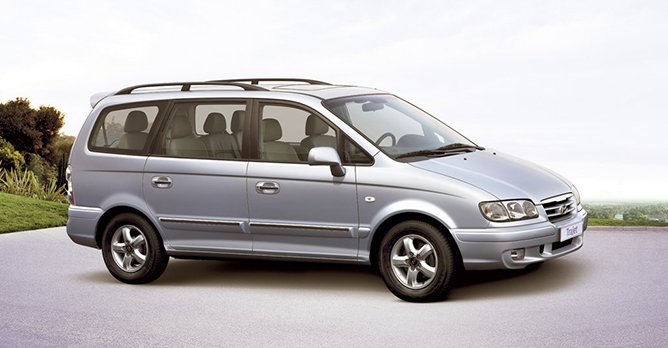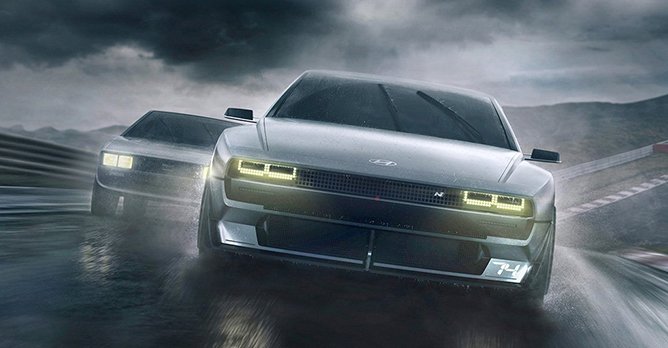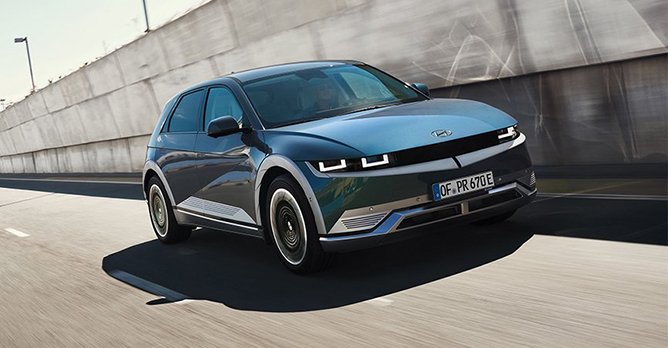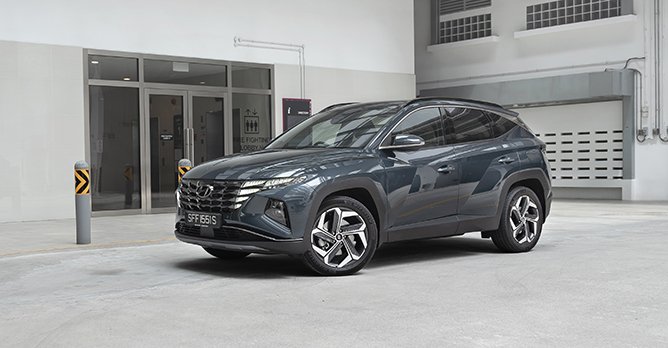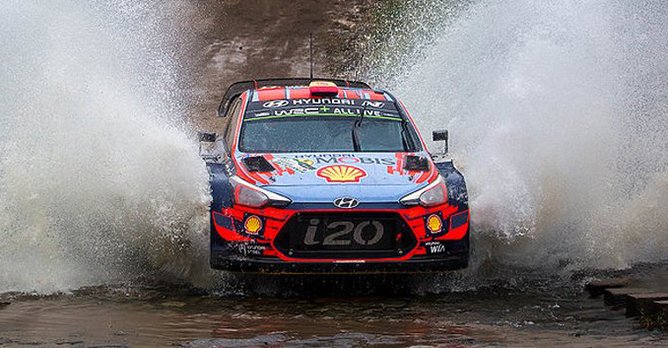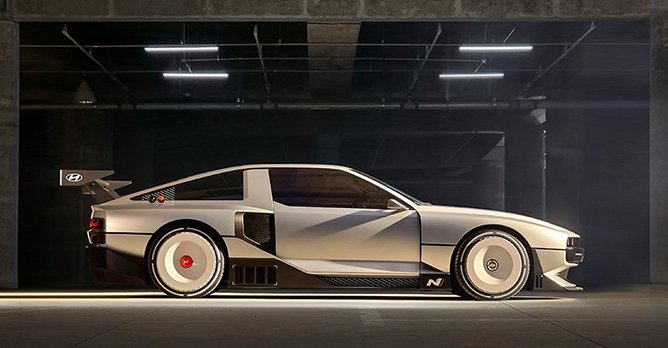Is the Hyundai brand officially cool now?
24 Aug 2022|11,543 views
Let's be honest, when we talk about cool automotive brands, Hyundai definitely isn't the first name that comes to mind.
Aston Martin, Ferrari, Lamborghini, Porsche, those are names that more likely evoke a sense of 'cool' - it's perhaps not necessarily the quality of the cars, but more so the evocative excitement that those brands can elicit.
The Hyundai brand was never really ever cool. And why should it be? This is a brand built primarily around bread-and-butter people movers.
Take the Hyundai Trajet for example - it is a seven-seater MPV whose name is derived from the French word that literally means "travel from one point to another". Doesn't have quite the same ring to it as 'Aventador', does it?
Modern models like the i30, Avante and Tucson have progressed significantly (and are undeniably good cars), and while they may not get people excited, bread-and-butter cars are important in cementing the business model (as well as to simply move people around).
However, we are starting to see a stark shift in the perception of the Hyundai brand. The most recently unveiled N Vision 74 concept generated huge buzz (and rightfully so, it is stunning), but the truth is that we've already been seeing this transformation over the past couple of years.
So what changed?
All new look
Design is certainly the first thing that comes to mind when talking about cool and exciting cars. And certainly, the new Hyundai models are radically different visually from the older models we are used to seeing on our roads.
In 2018, Hyundai unveiled the Le Fil Rouge concept car, which demonstrated the brand's new design philosophy called Sensuous Sportiness. With an emphasis on being both futuristic-looking and sporty, we have started to see new visually exciting models flow through the pipeline (the Ioniq 5 springs to mind).
This evolution in the visual identity of Hyundai cars has been a deliberate one. The hiring of renowned designers like Peter Schreyer, SangYup Lee and Luc Donckerwolke certainly helps explain how the brand's visual identity has been made to become more modern and desirable, with a distinct European influence.
Going all in
However, it's not just design where Hyundai are taking strides forward.
In 2014, the brand hired Albert Biermann, former Vice President of Engineering at BMW M, to direct chassis development for Hyundai vehicles. And, while we wouldn't necessarily call most Hyundai's 'sporty', there's definitely a better feeling of chassis sophistication and ride refinement.
And, in the 2021 review of WIPO's annual World Intellectual Property Indicators, Hyundai ranked as 4th in the world in industrial design registrations, behind only LG Electronics, Xiaomi and Samsung. This is an indicator of the technological strides that the brand is taking on the innovation front.
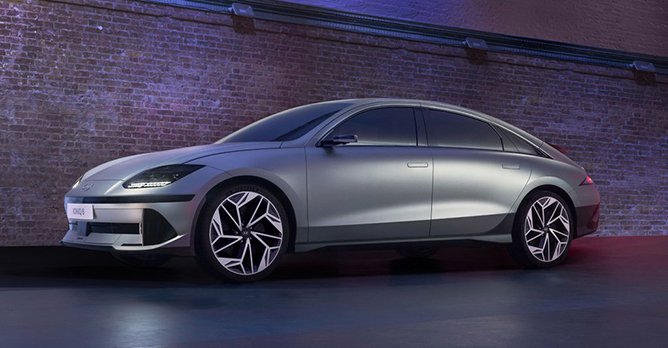
 Unsurprisingly, the brand is also making significant investment and taking big strides in the area of electrification So clearly, the brand is investing plenty of resources to continually improve and develop its cars.
Unsurprisingly, the brand is also making significant investment and taking big strides in the area of electrification So clearly, the brand is investing plenty of resources to continually improve and develop its cars.
Across the fields of electrification and performance, we've also seen something of an 'all-in' attitude from the brand.
On the electrification front, we've seen a wave of new developments since the original Ioniq was first launched. The Ioniq 5, and now the Ioniq 6, represent the new generation of all electric models that are starkly pointed at the future.
On the performance front, we've also seen the N performance sub-brand capture people's attention. The i30 N probably grabbed the most headlines locally, but there's even more going on. Globally, there are a total of six N models, including the i20 N hot hatch that is a direct successor of the i20 WRC rally car.
Hyundai has had an on-off relationship with motorsport, having competed in the WRC in the late 90s to early 2000s, and even had plans to enter Formula 1 (which eventually did not happen). It was only in December 2012 that the dedicated performance division, Hyundai Motorsport, was set up. Considering how young the program is, it's impressive that Hyundai not only snagged its first WRC manufacturer's title in 2019, but repeated that feat a year later.
Hyundai has also had stellar success in the World Touring Car Cup, and has developed an all-electric racing car as well.
Guns blazing
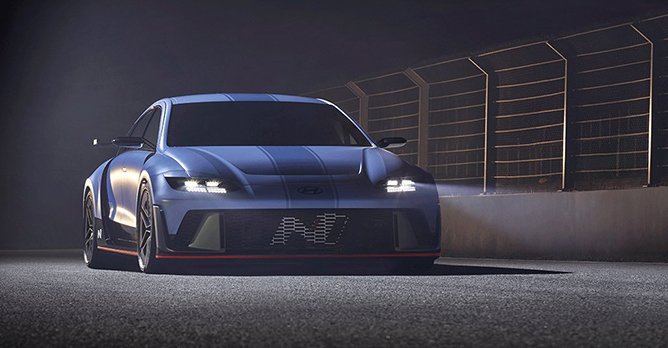
 The newest concepts from Hyundai have generated plenty of buzz, and demonstrate an 'all-in' attitude So, is it time now to finally admit and accept that the Hyundai brand is officially cool?
The newest concepts from Hyundai have generated plenty of buzz, and demonstrate an 'all-in' attitude So, is it time now to finally admit and accept that the Hyundai brand is officially cool?
Context is, of course, important. Brands like Ferrari and Lamborghini have built an entire business model around exotic scarcity, while newer players like Tesla have fully embraced the digital route. But for the long established mass market brands, we often see incremental and steady progress.
Think about the likes of Toyota, Honda, even Mercedes-Benz and BMW. While there are occasional surprises, the core models tend to progressively develop over time. Heated seats on demand (BMW's latest offering) may be practical and functional, but it's far from exciting or soul-stirring.
Where Hyundai is surprising people is the rate of progress, and the apparent commitment to radical development and change. Perhaps, it is here a case of a low bar to clear, but there's no denying that Hyundai has cleared that bar emphatically.
Alongside the N Vision 74, Hyundai also unveiled the RN22e concept. The brand is fully committed to electrification, at the same time seemingly fully committed to motorsport as well.
Chiefly, it seems that there's plenty coming from the Korean brand. And a lot of it appears interesting and exciting. And while yes, these may just be concepts, but we know that these ideas, whether aesthetic or mechanical, will eventually trickle down to the production cars as well. And that is definitely exciting for all of us.
And so yes, maybe it is time to finally accept that Hyundai is officially cool.
Aston Martin, Ferrari, Lamborghini, Porsche, those are names that more likely evoke a sense of 'cool' - it's perhaps not necessarily the quality of the cars, but more so the evocative excitement that those brands can elicit.
The Hyundai brand was never really ever cool. And why should it be? This is a brand built primarily around bread-and-butter people movers.
Take the Hyundai Trajet for example - it is a seven-seater MPV whose name is derived from the French word that literally means "travel from one point to another". Doesn't have quite the same ring to it as 'Aventador', does it?
Modern models like the i30, Avante and Tucson have progressed significantly (and are undeniably good cars), and while they may not get people excited, bread-and-butter cars are important in cementing the business model (as well as to simply move people around).
However, we are starting to see a stark shift in the perception of the Hyundai brand. The most recently unveiled N Vision 74 concept generated huge buzz (and rightfully so, it is stunning), but the truth is that we've already been seeing this transformation over the past couple of years.
So what changed?
All new look
Design is certainly the first thing that comes to mind when talking about cool and exciting cars. And certainly, the new Hyundai models are radically different visually from the older models we are used to seeing on our roads.
In 2018, Hyundai unveiled the Le Fil Rouge concept car, which demonstrated the brand's new design philosophy called Sensuous Sportiness. With an emphasis on being both futuristic-looking and sporty, we have started to see new visually exciting models flow through the pipeline (the Ioniq 5 springs to mind).
This evolution in the visual identity of Hyundai cars has been a deliberate one. The hiring of renowned designers like Peter Schreyer, SangYup Lee and Luc Donckerwolke certainly helps explain how the brand's visual identity has been made to become more modern and desirable, with a distinct European influence.
Going all in
However, it's not just design where Hyundai are taking strides forward.
In 2014, the brand hired Albert Biermann, former Vice President of Engineering at BMW M, to direct chassis development for Hyundai vehicles. And, while we wouldn't necessarily call most Hyundai's 'sporty', there's definitely a better feeling of chassis sophistication and ride refinement.
And, in the 2021 review of WIPO's annual World Intellectual Property Indicators, Hyundai ranked as 4th in the world in industrial design registrations, behind only LG Electronics, Xiaomi and Samsung. This is an indicator of the technological strides that the brand is taking on the innovation front.

Across the fields of electrification and performance, we've also seen something of an 'all-in' attitude from the brand.
On the electrification front, we've seen a wave of new developments since the original Ioniq was first launched. The Ioniq 5, and now the Ioniq 6, represent the new generation of all electric models that are starkly pointed at the future.
On the performance front, we've also seen the N performance sub-brand capture people's attention. The i30 N probably grabbed the most headlines locally, but there's even more going on. Globally, there are a total of six N models, including the i20 N hot hatch that is a direct successor of the i20 WRC rally car.
Hyundai has had an on-off relationship with motorsport, having competed in the WRC in the late 90s to early 2000s, and even had plans to enter Formula 1 (which eventually did not happen). It was only in December 2012 that the dedicated performance division, Hyundai Motorsport, was set up. Considering how young the program is, it's impressive that Hyundai not only snagged its first WRC manufacturer's title in 2019, but repeated that feat a year later.
Hyundai has also had stellar success in the World Touring Car Cup, and has developed an all-electric racing car as well.
Guns blazing

Context is, of course, important. Brands like Ferrari and Lamborghini have built an entire business model around exotic scarcity, while newer players like Tesla have fully embraced the digital route. But for the long established mass market brands, we often see incremental and steady progress.
Think about the likes of Toyota, Honda, even Mercedes-Benz and BMW. While there are occasional surprises, the core models tend to progressively develop over time. Heated seats on demand (BMW's latest offering) may be practical and functional, but it's far from exciting or soul-stirring.
Where Hyundai is surprising people is the rate of progress, and the apparent commitment to radical development and change. Perhaps, it is here a case of a low bar to clear, but there's no denying that Hyundai has cleared that bar emphatically.
Alongside the N Vision 74, Hyundai also unveiled the RN22e concept. The brand is fully committed to electrification, at the same time seemingly fully committed to motorsport as well.
Chiefly, it seems that there's plenty coming from the Korean brand. And a lot of it appears interesting and exciting. And while yes, these may just be concepts, but we know that these ideas, whether aesthetic or mechanical, will eventually trickle down to the production cars as well. And that is definitely exciting for all of us.
And so yes, maybe it is time to finally accept that Hyundai is officially cool.
Let's be honest, when we talk about cool automotive brands, Hyundai definitely isn't the first name that comes to mind.
Aston Martin, Ferrari, Lamborghini, Porsche, those are names that more likely evoke a sense of 'cool' - it's perhaps not necessarily the quality of the cars, but more so the evocative excitement that those brands can elicit.
The Hyundai brand was never really ever cool. And why should it be? This is a brand built primarily around bread-and-butter people movers.
Take the Hyundai Trajet for example - it is a seven-seater MPV whose name is derived from the French word that literally means "travel from one point to another". Doesn't have quite the same ring to it as 'Aventador', does it?
Modern models like the i30, Avante and Tucson have progressed significantly (and are undeniably good cars), and while they may not get people excited, bread-and-butter cars are important in cementing the business model (as well as to simply move people around).
However, we are starting to see a stark shift in the perception of the Hyundai brand. The most recently unveiled N Vision 74 concept generated huge buzz (and rightfully so, it is stunning), but the truth is that we've already been seeing this transformation over the past couple of years.
So what changed?
All new look
Design is certainly the first thing that comes to mind when talking about cool and exciting cars. And certainly, the new Hyundai models are radically different visually from the older models we are used to seeing on our roads.
In 2018, Hyundai unveiled the Le Fil Rouge concept car, which demonstrated the brand's new design philosophy called Sensuous Sportiness. With an emphasis on being both futuristic-looking and sporty, we have started to see new visually exciting models flow through the pipeline (the Ioniq 5 springs to mind).
This evolution in the visual identity of Hyundai cars has been a deliberate one. The hiring of renowned designers like Peter Schreyer, SangYup Lee and Luc Donckerwolke certainly helps explain how the brand's visual identity has been made to become more modern and desirable, with a distinct European influence.
Going all in
However, it's not just design where Hyundai are taking strides forward.
In 2014, the brand hired Albert Biermann, former Vice President of Engineering at BMW M, to direct chassis development for Hyundai vehicles. And, while we wouldn't necessarily call most Hyundai's 'sporty', there's definitely a better feeling of chassis sophistication and ride refinement.
And, in the 2021 review of WIPO's annual World Intellectual Property Indicators, Hyundai ranked as 4th in the world in industrial design registrations, behind only LG Electronics, Xiaomi and Samsung. This is an indicator of the technological strides that the brand is taking on the innovation front.

 Unsurprisingly, the brand is also making significant investment and taking big strides in the area of electrification So clearly, the brand is investing plenty of resources to continually improve and develop its cars.
Unsurprisingly, the brand is also making significant investment and taking big strides in the area of electrification So clearly, the brand is investing plenty of resources to continually improve and develop its cars.
Across the fields of electrification and performance, we've also seen something of an 'all-in' attitude from the brand.
On the electrification front, we've seen a wave of new developments since the original Ioniq was first launched. The Ioniq 5, and now the Ioniq 6, represent the new generation of all electric models that are starkly pointed at the future.
On the performance front, we've also seen the N performance sub-brand capture people's attention. The i30 N probably grabbed the most headlines locally, but there's even more going on. Globally, there are a total of six N models, including the i20 N hot hatch that is a direct successor of the i20 WRC rally car.
Hyundai has had an on-off relationship with motorsport, having competed in the WRC in the late 90s to early 2000s, and even had plans to enter Formula 1 (which eventually did not happen). It was only in December 2012 that the dedicated performance division, Hyundai Motorsport, was set up. Considering how young the program is, it's impressive that Hyundai not only snagged its first WRC manufacturer's title in 2019, but repeated that feat a year later.
Hyundai has also had stellar success in the World Touring Car Cup, and has developed an all-electric racing car as well.
Guns blazing

 The newest concepts from Hyundai have generated plenty of buzz, and demonstrate an 'all-in' attitude So, is it time now to finally admit and accept that the Hyundai brand is officially cool?
The newest concepts from Hyundai have generated plenty of buzz, and demonstrate an 'all-in' attitude So, is it time now to finally admit and accept that the Hyundai brand is officially cool?
Context is, of course, important. Brands like Ferrari and Lamborghini have built an entire business model around exotic scarcity, while newer players like Tesla have fully embraced the digital route. But for the long established mass market brands, we often see incremental and steady progress.
Think about the likes of Toyota, Honda, even Mercedes-Benz and BMW. While there are occasional surprises, the core models tend to progressively develop over time. Heated seats on demand (BMW's latest offering) may be practical and functional, but it's far from exciting or soul-stirring.
Where Hyundai is surprising people is the rate of progress, and the apparent commitment to radical development and change. Perhaps, it is here a case of a low bar to clear, but there's no denying that Hyundai has cleared that bar emphatically.
Alongside the N Vision 74, Hyundai also unveiled the RN22e concept. The brand is fully committed to electrification, at the same time seemingly fully committed to motorsport as well.
Chiefly, it seems that there's plenty coming from the Korean brand. And a lot of it appears interesting and exciting. And while yes, these may just be concepts, but we know that these ideas, whether aesthetic or mechanical, will eventually trickle down to the production cars as well. And that is definitely exciting for all of us.
And so yes, maybe it is time to finally accept that Hyundai is officially cool.
Aston Martin, Ferrari, Lamborghini, Porsche, those are names that more likely evoke a sense of 'cool' - it's perhaps not necessarily the quality of the cars, but more so the evocative excitement that those brands can elicit.
The Hyundai brand was never really ever cool. And why should it be? This is a brand built primarily around bread-and-butter people movers.
Take the Hyundai Trajet for example - it is a seven-seater MPV whose name is derived from the French word that literally means "travel from one point to another". Doesn't have quite the same ring to it as 'Aventador', does it?
Modern models like the i30, Avante and Tucson have progressed significantly (and are undeniably good cars), and while they may not get people excited, bread-and-butter cars are important in cementing the business model (as well as to simply move people around).
However, we are starting to see a stark shift in the perception of the Hyundai brand. The most recently unveiled N Vision 74 concept generated huge buzz (and rightfully so, it is stunning), but the truth is that we've already been seeing this transformation over the past couple of years.
So what changed?
All new look
Design is certainly the first thing that comes to mind when talking about cool and exciting cars. And certainly, the new Hyundai models are radically different visually from the older models we are used to seeing on our roads.
In 2018, Hyundai unveiled the Le Fil Rouge concept car, which demonstrated the brand's new design philosophy called Sensuous Sportiness. With an emphasis on being both futuristic-looking and sporty, we have started to see new visually exciting models flow through the pipeline (the Ioniq 5 springs to mind).
This evolution in the visual identity of Hyundai cars has been a deliberate one. The hiring of renowned designers like Peter Schreyer, SangYup Lee and Luc Donckerwolke certainly helps explain how the brand's visual identity has been made to become more modern and desirable, with a distinct European influence.
Going all in
However, it's not just design where Hyundai are taking strides forward.
In 2014, the brand hired Albert Biermann, former Vice President of Engineering at BMW M, to direct chassis development for Hyundai vehicles. And, while we wouldn't necessarily call most Hyundai's 'sporty', there's definitely a better feeling of chassis sophistication and ride refinement.
And, in the 2021 review of WIPO's annual World Intellectual Property Indicators, Hyundai ranked as 4th in the world in industrial design registrations, behind only LG Electronics, Xiaomi and Samsung. This is an indicator of the technological strides that the brand is taking on the innovation front.

Across the fields of electrification and performance, we've also seen something of an 'all-in' attitude from the brand.
On the electrification front, we've seen a wave of new developments since the original Ioniq was first launched. The Ioniq 5, and now the Ioniq 6, represent the new generation of all electric models that are starkly pointed at the future.
On the performance front, we've also seen the N performance sub-brand capture people's attention. The i30 N probably grabbed the most headlines locally, but there's even more going on. Globally, there are a total of six N models, including the i20 N hot hatch that is a direct successor of the i20 WRC rally car.
Hyundai has had an on-off relationship with motorsport, having competed in the WRC in the late 90s to early 2000s, and even had plans to enter Formula 1 (which eventually did not happen). It was only in December 2012 that the dedicated performance division, Hyundai Motorsport, was set up. Considering how young the program is, it's impressive that Hyundai not only snagged its first WRC manufacturer's title in 2019, but repeated that feat a year later.
Hyundai has also had stellar success in the World Touring Car Cup, and has developed an all-electric racing car as well.
Guns blazing

Context is, of course, important. Brands like Ferrari and Lamborghini have built an entire business model around exotic scarcity, while newer players like Tesla have fully embraced the digital route. But for the long established mass market brands, we often see incremental and steady progress.
Think about the likes of Toyota, Honda, even Mercedes-Benz and BMW. While there are occasional surprises, the core models tend to progressively develop over time. Heated seats on demand (BMW's latest offering) may be practical and functional, but it's far from exciting or soul-stirring.
Where Hyundai is surprising people is the rate of progress, and the apparent commitment to radical development and change. Perhaps, it is here a case of a low bar to clear, but there's no denying that Hyundai has cleared that bar emphatically.
Alongside the N Vision 74, Hyundai also unveiled the RN22e concept. The brand is fully committed to electrification, at the same time seemingly fully committed to motorsport as well.
Chiefly, it seems that there's plenty coming from the Korean brand. And a lot of it appears interesting and exciting. And while yes, these may just be concepts, but we know that these ideas, whether aesthetic or mechanical, will eventually trickle down to the production cars as well. And that is definitely exciting for all of us.
And so yes, maybe it is time to finally accept that Hyundai is officially cool.
Thank You For Your Subscription.












